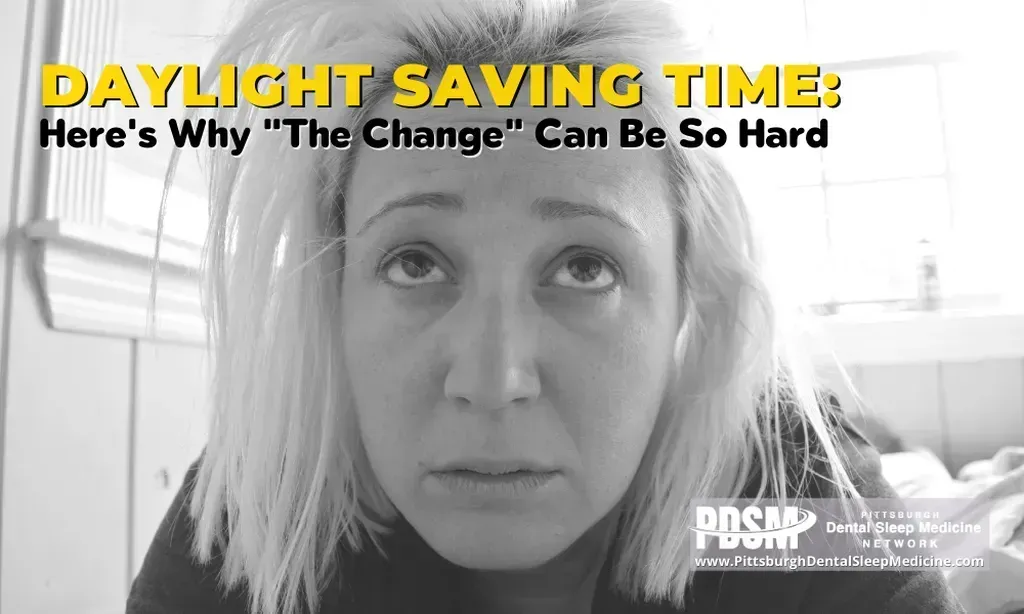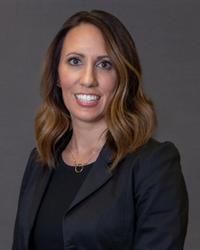DAYLIGHT SAVING TIME: Here is Why "The Change" Can Be So Hard

The concept of daylight saving time was instituted in the U.S. during World War I in order to save energy for war production by taking advantage of the later hours of daylight between April and October. Then, the passage of the Energy Policy Act in 2005 extended daylight saving time by four weeks — from the second Sunday of March to the first Sunday of November.
WHAT ARE THE DRAWBACKS OF DAYLIGHT SAVING TIME?
Daylight saving can easily throw off your sleep cycle, or your circadian rhythm. Your circadian rhythm is your body's natural cycle, which is comprised of the physical, mental, and behavioral changes that exist in a 24-hour period of time. A disruption in this rhythm, like Daylight Saving, even if it’s a mere 60 minutes, can have a significant, negative effect on your body’s biological clock.
The National Sleep Foundation recommends that adults try to get an average of eight hours of sleep per night and that making sleep a priority can have long-term effects on quality of life. The ideal amount of sleep can vary from person to person, so they emphasize that it’s important to understand what your needs are based on individual behavior, like your activity level and overall health.
According to the author Matthew Walker, Ph.D., in his New York Times bestseller “Why We Sleep”, routinely sleeping less than six or seven hours a night has a direct and adverse effect on your overall health. Destructive results from poor sleep hygiene include:
- Destroys your immune system
- More than doubles your risk of cancer
- Disrupts blood sugar levels
- Causes hormonal imbalance
- Increases the chance of cardiovascular disease, congestive heart failure, and stroke
- May lead to psychiatric conditions such as depression, anxiety, and suicidality
- Can cause weight gain
- Decreases life span
That’s an incredible amount of damage that can be done to the human body and mind. The earlier you can pinpoint and change bad sleep habits, the greater effect it can have in altering your well-being and life expectancy.
BAD HABITS THAT CAN DISRUPT YOUR SLEEP ROUTINE
The practice of Daylight Saving Time only happens twice each year, but there are plenty of other disruptive activities that can, and do, occur on a daily basis that negatively affect our sleep patterns. Some examples include:
Electronics: The blue light emitted by screens on cell phones, computers, tablets, and televisions restrain the production of melatonin, the hormone that controls your sleep/wake cycle.
Jet Lag and Shift Work: Normally, light serves to set our internal clock to the appropriate time. However, problems can occur when our exposure to light changes due to a shift in work schedule or travel across time zones.
Pain, Anxiety, and Other Medical Conditions: A wide range of medical and psychological conditions can have an impact on the structure and distribution of sleep. These conditions include chronic pain from arthritis and other medical conditions, discomfort caused by gastroesophageal reflux disease, pre-menstrual syndrome, and many others.
Noise: Sleeping in a noisy environment can be disruptive and prevent you from getting quality sleep.
Toothpaste and Mouthwash: Avoid toothpaste and mouthwash a few hours before bedtime. Products that contain peppermint and cinnamon can have a stimulating effect and increase your alertness.
Vitamins: If you’re having trouble staying asleep, try taking your vitamins in the morning. Vitamin B12 affects melatonin levels, making sleep more difficult to come by. Also, if vivid dreams are waking you up, vitamin B6 may be the culprit.
Alcohol: Drinking a beverage before bed may help you fall asleep, but it actually disrupts your sleep later on. Drinking alcohol is associated with more frequent awakenings, bathroom visits, night sweats, nightmares, headaches, and is much less restful.
Caffeine: Caffeine is a stimulant that is found in many drinks and foods like tea, coffee, chocolate, and cola drinks. It takes about 30-70 mins to reach peak levels in your body and its effects can last an average of five hours. It can make it harder to go to sleep, make you sleep more lightly and wake up more often during the night, or cause frequent bathroom visits.
Clothing Fabric: Some sleepwear and bed linens, such as polyester, are not breathable and can cause you to overheat, become sweaty, and result in sleep disruption.
Smoking: Nicotine is a stimulant that makes it harder to fall asleep and to stay asleep. Cigarettes should be avoided altogether for overall health and wellness.
Lack of Sunlight: Regular exposure to sunlight strengthens your circadian rhythm and makes you more likely to fall asleep easily at night.

Dr. Lindsay Jodon, DMD, Dental Sleep Medicine expert at Pittsburgh Dental Sleep Medicine, recommends that people who suffer from preventable sleep disorders should take the necessary steps to train their bodies for better sleep. This consistency is what leads to having predictable bedtime times, wake times, and (eventually) nap times.
Some simple healthy sleep habits that Dr. Jodon suggests include:
- Establish a bedtime routine. Be consistent with your sleep schedule to help regulate your body's internal clock.
- Avoid highly stimulating activities before bed (screen time). Focus on a relaxing activity like listening to music or reading a book.
- Eliminate caffeine and heavy meals late in the day.
- Avoid naps if you have trouble sleeping. If you must nap, take one earlier in the day.
- Daily exercise helps reduce stress and anxiety.
- Avoid alcohol before bed. Alcohol can induce a state of relaxation and drowsiness and reduce the time it takes to fall asleep. However, research shows that alcohol has a profound effect on sleep and sleep quality.
CHRONIC DISORDER THAT DISRUPTS YOUR SLEEP ROUTINE:
According to the American Sleep Association (AMA), sleep disorders currently affect as many as 50 to 70 million U.S. adults.
The top five most prevalent sleep disorders are Sleep Apnea, Insomnia, Restless Legs Syndrome, Narcolepsy, and REM Sleep Behavior. For most of these behaviors, seeking professional help may be the only plausible solution.
Thankfully, there are treatments available for most of these disorders. The first step in seeking treatment would be to schedule an appointment with a primary care physician who can prescribe a sleep study, or go directly to a Sleep Physician for a medical diagnosis. Some of the treatments available for each condition are as follows:
Sleep Apnea
Sleep apnea is a common disorder characterized by frequent nighttime breathing disruptions. It often goes undiagnosed and can cause significant problems. Sleep apnea can disrupt your health, get in the way of your daily routines, and negatively affect your performance at school or the workplace.
There are several types of sleep apnea, but the most common is called obstructive sleep apnea. This occurs when the muscles in your throat relax so much during sleep that they obstruct your airway. Your body responds by gasping for air, a process that disrupts your sleep.
Your treatment path depends on your overall health and the severity of your sleep apnea. In cases where an underlying medical condition might be to blame, treating that condition is often the first step.
A common breathing therapy treatment that can help resolve issues related to sleep apnea and other breathing conditions is Continuous Positive Airway Pressure ( CPAP ). There are several types of CPAP devices, but all work to direct a flow of air into your airway, helping your body get the oxygen it needs to thrive.
When CPAP is not an option, or you prefer a different approach, doctors that specialize in sleep dentistry, such as Pittsburgh Dental Sleep Medicine, offer oral appliances as an excellent alternative to CPAP. These devices are worn in your mouth while you sleep and help keep your airway open. They are noninvasive and nonintrusive, offering a custom fit, and are comfortable to wear.
While we may not be able to change the fact that Daylight Saving Time occurs, at Pittsburgh Dental Sleep Medicine our experienced Sleep Dentists CAN do something about treating your sleep apnea and snoring. Our doctors are specially trained to help find a solution for your fatigue and sleepless nights.
Contact us today to learn if you are a candidate for oral appliance therapy. We have four convenient locations in Wexford, McMurray, Latrobe, and Monroeville Pennsylvania.
Oral Appliance Therapy for Sleep Apnea is covered by most medical insurance plans. (724)936-6670
https://www.sleepfoundation.org/circadian-rhythm
Walker, PhD, Matthew. Why We Sleep. New York, NY, Sion & Schuster, Inc., 2017. Print
http://healthysleep.med.harvard.edu/healthy/science/how/external-factors#:~:text=Other%20factors%20that%20affect%20sleep,and%20quality%20of%20our%20sleep.
https://mypvhc.com/surprising-things-affecting-sleep/
https://www.aastweb.org/blog/how-to-diagnose-treat-the-5-most-common-sleep-disorders
https://www.ncbi.nlm.nih.gov/

